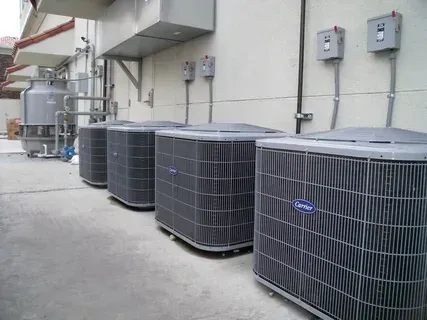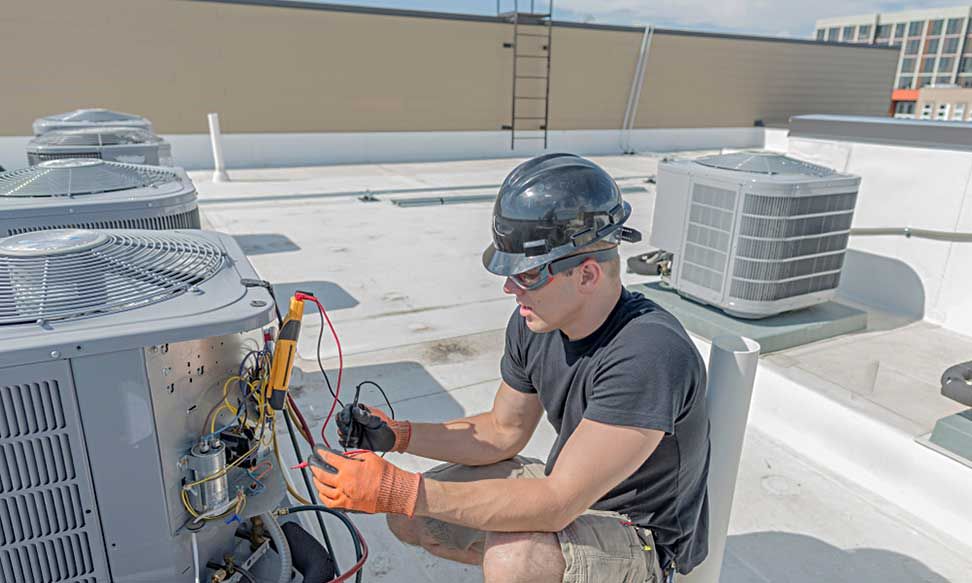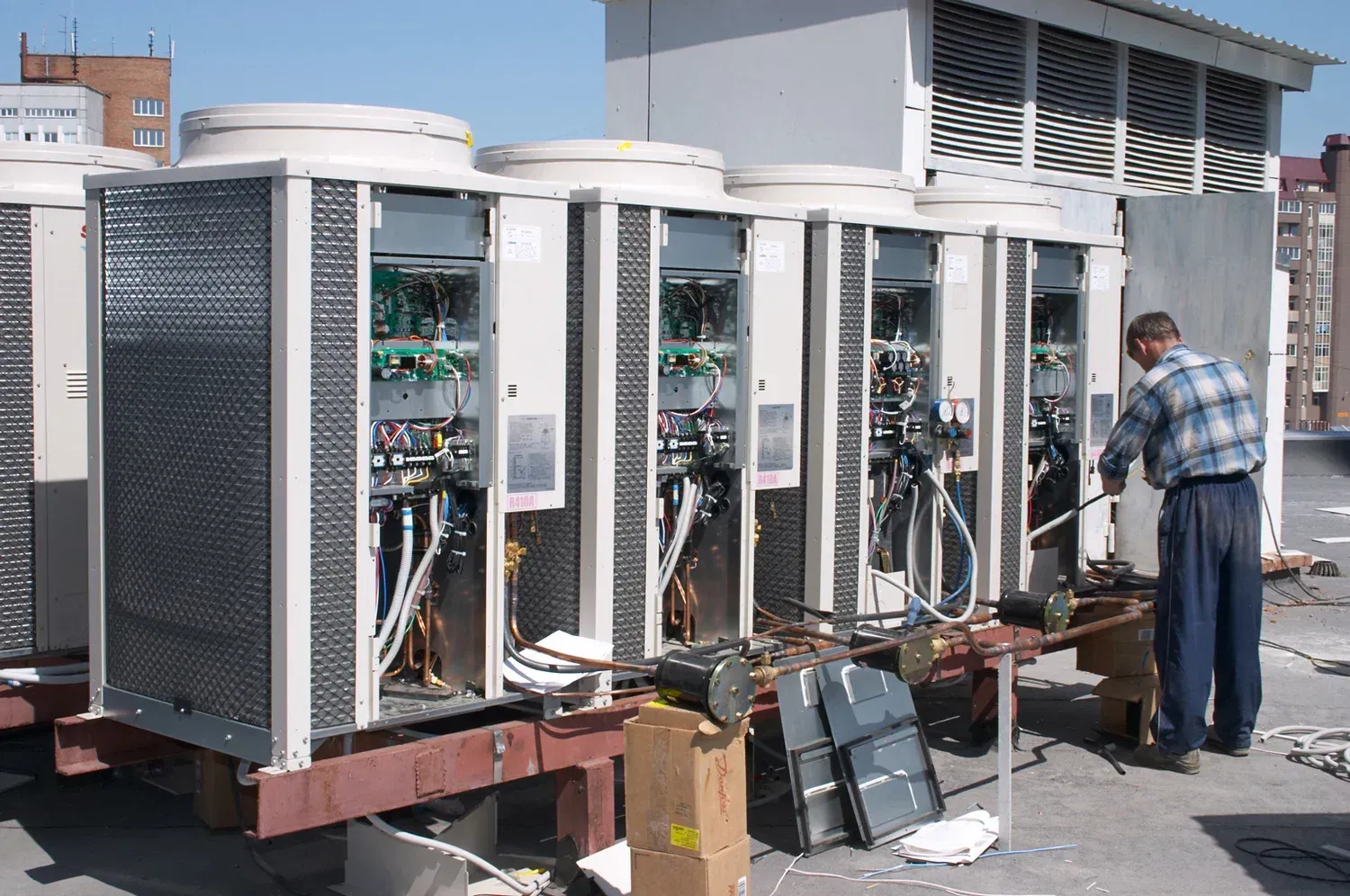How Heating and Refrigeration Systems Work: A Quick Overview
The modern way of life depends on heating and refrigeration systems which deliver both thermal comfort and operational efficiency to preserve perishable goods and create safe indoor conditions. Current systems utilize advanced operational systems with technological elements to control temperatures for different applications.
Heating solutions supply heat during winter months and refrigeration systems preserve freshness of medicine together with food for prolonged storage needs.
Procedural knowledge of these systems allows homeowners and businesses to property select radial maintenance options for heat and refrigeration systems.
We will discuss a detailed exploration of heating and refrigeration systems focusing on their operational principles and component structures as well as effect assessment and expense breakdowns. Knowledge about fundamental systems properties leads directly to better system performance and increased operational lifespan.
The Basics of Heating Systems
Heating systems are designed to create warmth by producing and dissipating heat throughout a room or space. These systems are essential for creating comfort during colder seasons in homes, offices, or industrial settings. Here's an explanation of their operation as well as various models currently on the market.
How Heating Systems Work
The operation of heating systems relies on heat transfer principles because they convert natural gas or oil or electric energy into heated forms for distribution. The generated heat spreads through surroundings by means of air water and steam distributions for efficient building temperature management.
Manufactured heating systems depend on furnaces and boilers and ductwork to perform as heat distribution elements. The accurate management of temperature levels in these systems depends on thermostats which optimize both efficiency and output through dynamic adjustments.
The evolution of modern heating technologies over time resulted in enhanced convenience together with energy efficiency improvements. Users can create personalized temperature settings through programmable interfaces which help them plan their heating routines. These measures deliver maximum temperature comfort and simultaneously lower energy usage.
Homeowners now find smart controls highly desirable because these systems enable remote access and system management through mobile phones and alternate devices. These advancements create enhanced user comfort in addition to helping homeowners make economical savings through reduced energy costs thus making today's heating systems convenient at a reasonable cost.
The development of technology has resulted in heating systems that use less energy through environmentally friendly design offerings that satisfy growing consumer interests in sustainable energy solutions.
Types of Heating Systems
- Furnaces heat air that is then circulated via duct systems They're an economical and effective choice for residential properties.
- Boilers produce steam that circulates via radiators or pipes. They are highly energy-efficient solutions!
- Heat pumps rely on moving rather than producing heat to warm or cool temperatures, and can work effectively both as heating and cooling sources in mild climates.
- Electric Heating Systems use electricity as a fuel source to generate warmth. They're especially economical in areas with lower electricity rates.
The Basics of Refrigeration Systems
Refrigeration systems extract heat from an area to maintain an ideal climate and preserve goods or air conditioning spaces, such as food storage or healthcare settings. Their operation plays an essential role in various fields such as storage or air conditioning systems for food or healthcare uses as well.
How Refrigeration Systems Work
A practical refrigeration cycle executed by refrigeration systems functions through a combination of four essential procedures. Four distinct steps that enable refrigeration systems work are evaporation and compression and condensation and expansion respectively.
During this phase refrigerant pulls environmental heat to provide space cooling and maintain temperatures at their lowered state in your system.
After evaporation the compressor becomes vital because it implements pressure on gas refrigerant to cause large temperature rises.
During condensation the compression heat transfer occurs outside the system as the refrigerant releases trapped heat from compression.
When refrigerant exits condensation it flows into an expansion valve to experience reduced pressure that results in cooling leading it to re-absorb heat.
Refrigeration operation maintains efficiency through this continuous process which allows reaching target temperatures within refrigerated spaces. The continuous cycle functions as a fundamental component for safeguarding products while maintaining temperature control across assorted applications.
Types of Refrigeration Systems
- Domestic Refrigerators: Common in homes, these refrigerators help preserve food by maintaining an ideal cooling temperature inside.
- Commercial Refrigerators: Common in industries like food service, these units feature larger storage capacities and advanced cooling features for faster food preservation.
- Industrial Refrigeration Systems: Used primarily in warehouses and factories to manage perishable goods cooling needs on an industrial scale.
- Air Conditioning Units: Although primarily used as comfort measures, air conditioning units use refrigeration principles for effective indoor climate control.
The Importance of Proper Maintenance
System maintenance of heating conditions and refrigeration equipment needs additional emphasis than anything else. System inspections maintain maximum performance of these systems through proper servicing.
Multiple issues occur in heating systems because filters become contaminated while condensers get blocked and component malfunctions result in decreased performance as well as elevated operational expenses. Heating and refrigeration systems undergo professional inspections at scheduled times which allows technicians to find small problems before they transform into costlier future repairs or replacements.
Making reliable choices among HVAC maintenance service providers leads to improved operational results and extends useful system life and ensures both efficiency and safe working conditions. Specialized professionals assist in maintaining peak functionality of systems by performing complete system cleansing alongside inspection assessments and supply of refrigerants.
Regular maintenance gives both homeowners and businesses the comfort of peaceful living because it keeps their heating and refrigeration systems running optimally.
Reducing energy costs for homeowners long-term remains a benefit of machines that perform more efficiently. Regular system upkeep can result in lower energy expenses and gives people comfort.
Fundamental maintenance requires wise investment because it offers the dual advantage of operational comfort along with cost-effective solutions.
Energy Efficiency Is Key
Energy usage is one of the primary concerns for system owners. High-efficiency systems reduce power bills while having less environmental impact. Upgrading outdated systems with new ones, using programmable thermostats and sealing your home properly all make an impactful difference. Look out for units certified as ENERGY STAR for optimal savings and performance!
When to Replace or Upgrade Systems
At times, repair costs outweigh any advantages to keeping an older heating or refrigeration system. Breakdowns, rising utility costs or difficulty finding parts could all signal it may be time for an upgrade.
Modern systems offer better efficiency, advanced features and reduced carbon footprint making them worthwhile investments.
Conclusion
Heating and refrigeration systems utilize complex yet simple mechanisms to regulate temperature. Understanding these systems' components allows you to make more informed decisions when it comes to installation, use, and maintenance decisions.
Climate control systems play a vital role in daily life. Through routine upkeep, energy-saving measures and expert guidance, these systems should last as promised and deliver optimal performance for years to come.
FAQs
How should I schedule maintenance of my heating or refrigeration systems?
Heating and refrigeration systems should be serviced annually at least, in order to maximize performance, longevity, and energy efficiency. Regular servicing helps maintain optimal performance levels across these key aspects.
What are signs my heating or refrigeration system needs repairs?
Keep an eye out for unusual noises, inconsistent temperatures or increased utility bills as indications your unit requires service. Furthermore, struggling systems could require professional help for settings to remain optimally set.
Do you provide emergency heating and refrigeration repair services?
Yes. Our team offers rapid service around-the-clock for urgent heating and refrigeration repairs. Be it a breakdown, breakdown repair or urgent repair issue, we're here for you when needed!
You might also like




